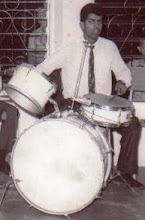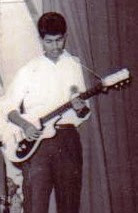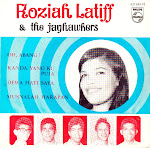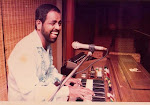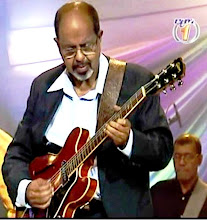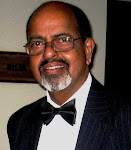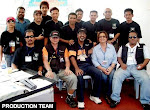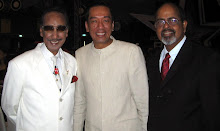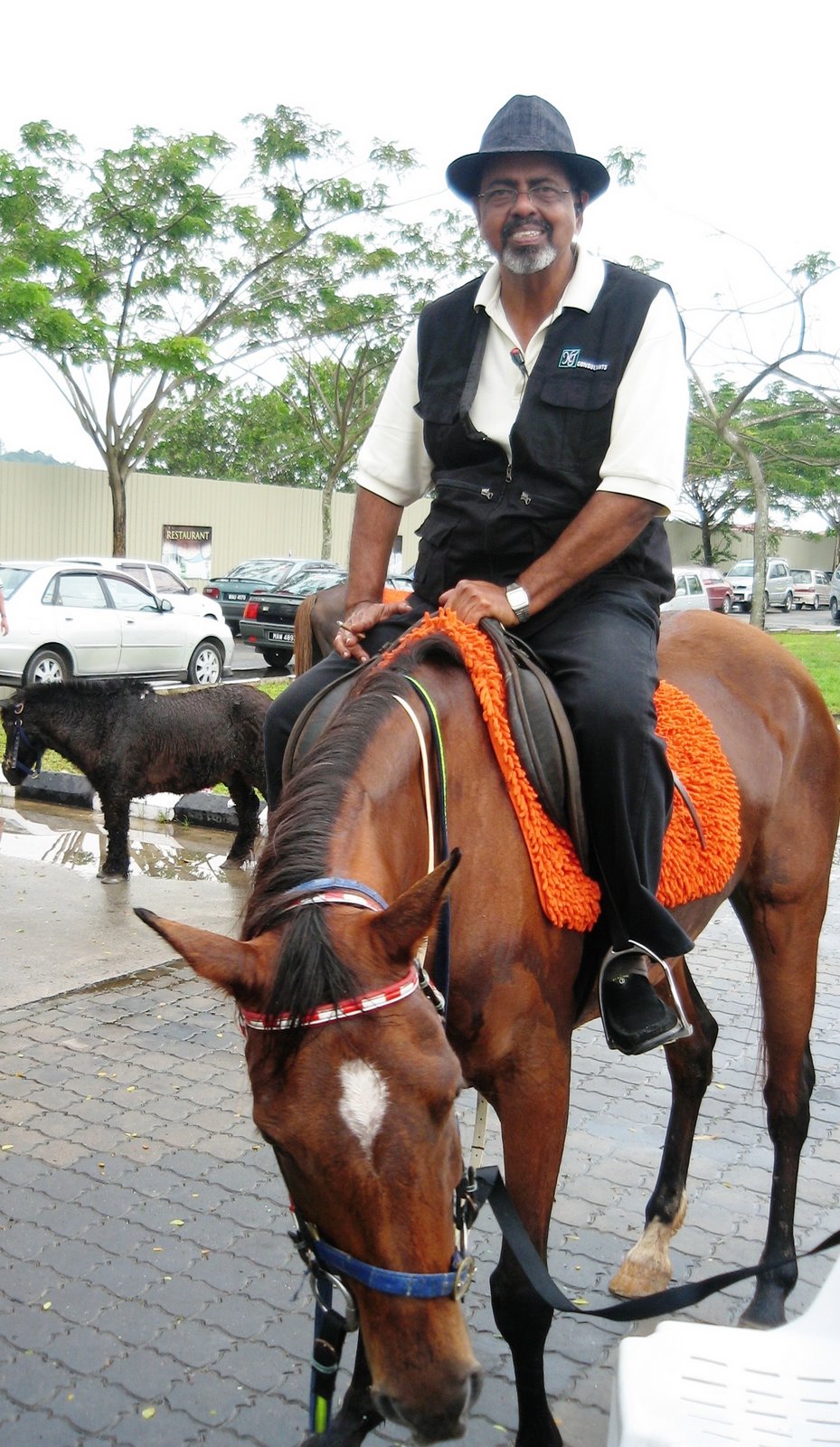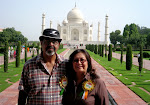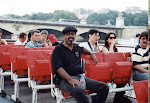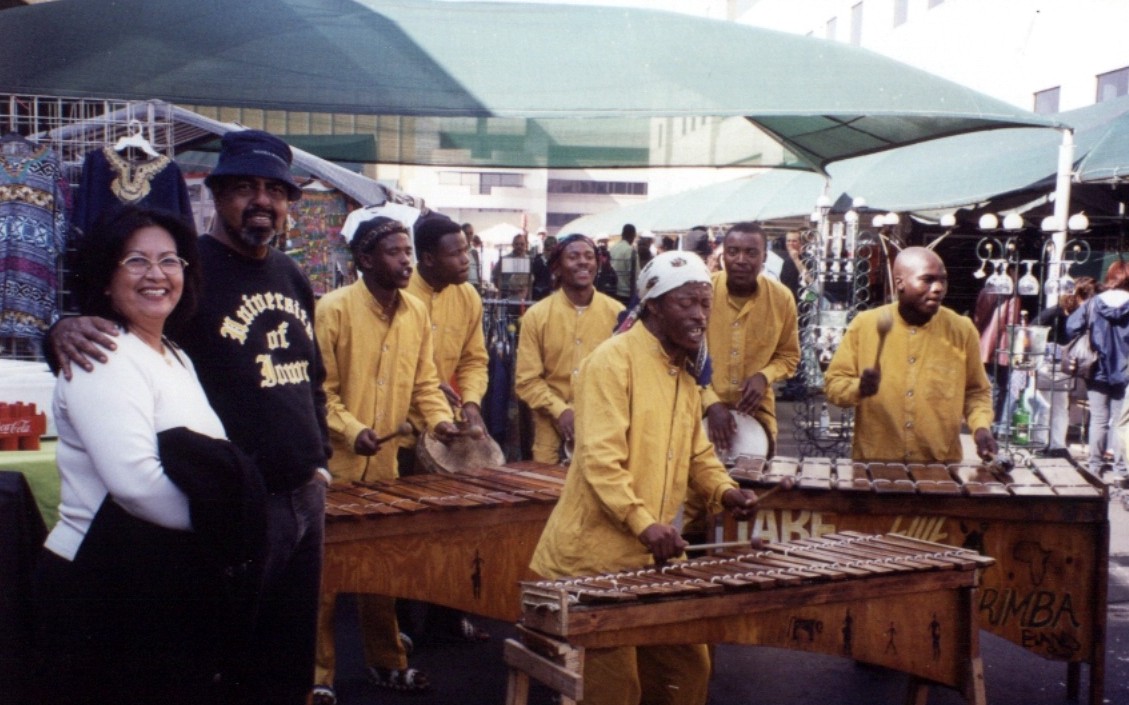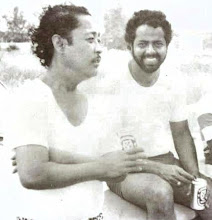
by Joe Chelliah

For music and the music industry to fare better in Malaysia, a better music education system in the country is absolutely vital. Music education, indeed education itself is basically behaviour modification. At the macrocosm there are primary and secondary objectives for behavioural outcomes in any education program and and these are clearly stated in the curriculum. Any clasroom music lesson is at the microcosm level in which the teacher states his/her implicit and explicit aims together with the behavioural outcomes envisaged. If the desired outcome is not there or does not happen, then the lesson is deemed a failure. In plain language, a good tree is known by the quality of its fruits. If the fruits are not good or not there, then the tree is also deemed not good. If we liken music education in Malaysia to this figurative tree since 1950’s till now, we can ascertain the success or otherwise of the programs by what we see in the end products - its citizens. Frankly, having lived through and seen music since Merdeka I see no significant difference between an average member of the Malaysian society of today from those from P. Ramli’s generation of the Merdeka years. The bigger majority from both groups:
a. Are equally uninformed about almost all aspects of music.
b. Are incapable of any serious or intelligent thoughts/discussion about any kind of music including
their preferred variety.
c. Think of music as purely serving a hedonistic function in society.
d. Have very narrow musical tastes with a distinct preference for the pop varieties.
e. Can go "crazy" about good looking pop singers irrespective of the songs that they sing to the extent of even wanting to marry the prettier ones....a cult culture of sorts.
f. Love Hindi songs (esp. Malays) passionately the main reason being the pretty faces who deliver the songs on the screen and often not because of say, the brilliant exploitation of western musical instruments made subservient to Indian ragas and melodic schemes by Indian composers. Few have ever heard of outstanding and prolific playback singers like Mohd.Rafi, Asha Bhosle or Lata Mangeshkar let alone discuss the differences in their vocal styles or octave range / tessitura..
g. Look down on any non-European music especially if they happen to come from English
speaking homes with a misguided notion that the only music worth listening to or studying is Western classical or pop music.
h. Do not respect intellectual property of the musicians and singers and recording companies. Some may not even know what all these copyrights and intellectual property mean.
i. Are not bothered about the quality of commercial music reproduction resulting in widespread and high success rate for musical piracy beginning in the 60’s itself. My own commercial albums were pirated in 1966.
j. Reject the recorder which is considered a “sakit telinga”(painful to the ear instrument.
k. Have not heard of patriotic songs such as “Pahlawan Ku” unless maybe a popular pop singer like Siti Nurhaliza sings them.
l. Do not remember locally composed children’s songs taught in schools as much as western children’s songs such as “Are You Sleeping? or “Happy Birthday”.
m. Unable to both visually and /or aurally identify most instruments - western and non- Western.
n. Are incapable of singing the national anthem or respective state anthems accurately with correct lyrics and in tune or rhythm.
o. Look upon musical notation as both cumbersome as well as not worth learning even if they are professional musicians or singers preferring to perform “by heart” instead.
So what does all this mean? Simply put, formal music education has failed in Malaysia. If we have brilliant singers and musicians in Malaysia they owe very little to the public music education program. Our singers and composers frequently complain about not being given preferential treatment in the airing of their songs and do a "cry baby" with the government. It could simply be that their songs are not of quality. Malaysian music too, in general, does not seem to fare too well compared with say its Indonesian or Filipino counterparts.
It is praiseworthy that the Malaysian government, on its part, had spent/wasted billions by now. The problem is really more with the Malaysian public which does not see or care to know about the benefits of musical knowledge and appreciation. It has not seen the emergence of a musically educated generation even after 1983 with the introduction of music as a compulsory subject. Most parents are more concerned with Mathematics and Science which are seen as gateways to a better future (and scholarships)and they are are just being realistic. Most of the top sought after jobs such as being a MAS / Air Asia pilot need a 1st Grade pass with a clear focus on the sciences and do not care whether you did well in the arts - History, Geography etc. with musical ability at the bottom. No interviewer would ask if the candidate can sing or play an instrument except perhaps yopu are interviewing for a music teacher course.
Therefore, it is my contention that music education in Malaysia has not really moved anywhere. The progress made in Malaysian music education since Merdeka would be to liken it to the wheels of a car that gets stuck in mud. Only the higher speed of the spinning wheels may portray an illusion of getting along. If you are sitting in a stationary bus, the actual movement of another bus next to it makes you feel that your own bus is moving. This phenomenon is called parallax motion in astronomy and explains why people once mistakenly held the view that the sun circled the earth (geocentric view.
To my mind too, most members of the Malaysian music education community seem to be quite satisfied with what is happening currently (or rather not happening) and feel there has been much "development" in music education just because of better physical infrastructures and the use of more modern technology. This feeling of "apparent forward motion" in music education has been with us, especially the Ministry of Education folks, ever since 1983 at all levels of the education process.
The government and the lay public have spent and invested vast amounts of money in both public and private music education. First let us take a look at the pre-school level. What happens there is anyone’s guess. We will leave this level at that for now. At the primary schools, we have had a compulsory and formal music curriculum since 1983. The children are ever eager and are more than willing to learn music. Actually, young children are not and never will be the problem in music education anywhere in the world.
At the secondary school level music is an elective subject and given some place in the co-curriculum. I am told that a secondary school that wants to start a music program these days must first come up with RM 200, 000 under the KBSM scheme of things. No surprise that people steer clear away from such aspirations. I wonder why we need that amount of money for starters and where such a suggestion originated in the first place. I am made to understand that that the SRP Music and SPM music papers are still offered. No one really complains and life goes on. The established schools that have always had a good tradition with brass bands and choirs carry on the tradition and boast of many shields and trophies from music competitions.
One might be inclined to think that at the teacher education colleges’ level things should be much better off because music education has been associated with them since the 1950’s – from the days of Day Training Centers (DTCs) and Malayan Teachers Colleges (MTCs) which later blossomed into the teacher education institutions of today. Added to it is the fact that in more recent times the good old teacher-training certificates have been upgraded to a diploma and even more recently to first degrees. However, the situation in the teacher education colleges is still not much different than about twenty years ago. The upgrade to diploma status has still failed to significantly attract the better crop of school leavers (with good music or musicality background) and the desired improvement in the input quality of student teachers has not taken place. So we are again back to square one with input material of about the same quality as the earlier certificate program teachers of yesteryears although they end up with a degree or graduate teacher’s status. Lacking in musicality and/or better academic prowess, most of these students drudge their way through the teacher training institutes for the required period of study. This period requirement at college has also been oscillating between two to three years for more than half a century.
Today, we can be proud to have at least seven IPTs offering music or music related courses namely UiTM, USM, UKM, UPSI, UM, UNIMAS and UMS. The formal study of music at IPTs has taken several turns since its introduction at Institut Teknologi MARA (ITM)in 1984. ITM is the first recognized higher institution of learning to have music in the curriculum as DTC's and MTC's were never recognized as IPTs till quite recently. The music department at ITM was placed under the School of Art and Design. After almost eighteen years the study of formal music has been separated and comes under two different faculties. Music Education comes under the Faculty of Education and The Music Department comes under the Faculty of Performing Arts. At the Universiti Putra Malaysia (UPM) the study of music comes under the purview of the Faculty of Human Ecology. At UPSI, music comes directly under the Music Faculty and Performing arts and no longer under the Faculty of Social Science and Arts. At UiTM too something similar has developed in more recent times.
There might be a shortage of truly well qualified and experienced personnel to kick off better music programs in Malaysian IPTs. The “Malaysian” philharmonic orchestra has more than 95% of its members who are recruited from overseas to maintain higher standards. Surely a similar short-term solution for our universities can also be done with truly experienced and scholarly academics from USA or UK brought in to help. If this is done, I hope that country from which we invite expatriate scholars to teach here is wisely chosen. We should not be repeating the mistakes of the past. Inviting a music professor from Pakistan, for instance, may not be a great idea.
To me, music education in Malaysia is clearly still in an embryonic stage. However, that is not going to stop me from saying what I think ought to be said. It has been my observation that music at the tertiary level in Malaysia has generally lacked a clearer sense of direction. Certain new players, particularly UPSI and ASWARA, have a clearer focus in that the good people there have decided what and where their graduates will be going to - public schools, colleges and culrural departments. However, the main question for each program planner at the university to answer is this. “What is the graduating student being equipped with and what or where is his / her place in the job market out there going to be?” That is the ultimate question. Stating the obvious, a general lack of clear direction or focus can get an institution and its students nowhere. The private music institutions (IPTS) may be seen to be slightly ahead in this matter of focus and direction. They have to be or may be forced to close down due to lack of students / business. The public schools, colleges and universities do not have this sort of survival fate or syndrome to worry about and are in some sort of comfort zone. This can be a problem if future job prospects and requirement(s) for the graduating students receive inconsequential focus.
I feel that not many music educators and music education planners bother to know more about the job market for their graduating students especially in the commercial sector. This mindset has to change. Thus we shall see many so called performance majors end up teaching music as private tutors from the home or at homes. This is so because there are insufficient avenues for them to perform and more so if they perform only Western classical music.
In a democratic society like ours, the significant majority of Malaysians seem to share a view that music is not that important in education. Such notions, however wrong, are actually quite universal and found not only in Malaysia. The world leader and global trend setter in music education is the USA. No other country in the world comes anywhere close to it, in my opinion. The justification for this statement is based purely on an analytical observation and study of their approach towards music and music education since the times of Lowell Mason in the 19th century itself. It is about involving and incorporating philosophy, psychology, sociology, research, history, technology, funding, priority, performance, pedagogical concerns into the formal study of music as a holistic approach.
Even in USA they have been having a “Save Our Music in the Schools” campaign for some time now. Such is the state of music education even in USA. The struggle to keep music in the curriculum is a universal one and therefore not an imagined one even in Malaysia. As I have said, the public in Malaysia is yet to see any real positive outcome from the inclusion of music in the formal curriculum. Research in this area to connect musical study to better academic and overall educational success is sorely lacking. The public does not even see their children being more selective or fussy about musical tastes since exposure to KBSR in 1983. The oldest member of the KBSR generation(s) should be about twenty-six years old by now and are as much naïve about music as his/her counterpart of today or in earlier times.
A good music education program must start with a general music education program. In such a scheme of things, all children are taught music appreciation and exposed to a greater variety of music and musical instruments – both local and international. They need not have to perform music as much as to have a musical understanding first. They should be able to recognize both visually and aurally different kinds of instruments. This can only happen if they are shown visuals and made to listen to sound recordings of such instruments to broaden their musical horizons. They should also be able to recognise different kinds of music and musical styles. The music showcased can be both popular as well as art/ethnic music of today and earlier times and from different cultures as well.
The Ministry of Education(MOE), to my mind, must bear the sole blame for all the inadequacies for its music programs that have been in vogue. It is sad that this ministry is quite myopic in its planning and execution with little or no input from music organizations and the general public outside its purview. The Kementerian Penerangan, Komunikasi and Kebudayaan on the other hand spent about three years to formulate their Dasar Pembangunan Industry Muzik with regular meetings and input from various organizations and even individuals. The MOE does not seem to even have fair communication within its own divisions and departments and allows Pusat Perkembangan Kurikulum, for example, to do the entire curriculum planning with absolutely no input from music NGOs', for example.
I hope I live long enough to see real meaningful innovations in music education instead of having to witness more wastage of public funds in the form of meaningless seminars, workshops and retreats that brings little or no change to the core problems faced in Malaysian music education.




.jpg)









